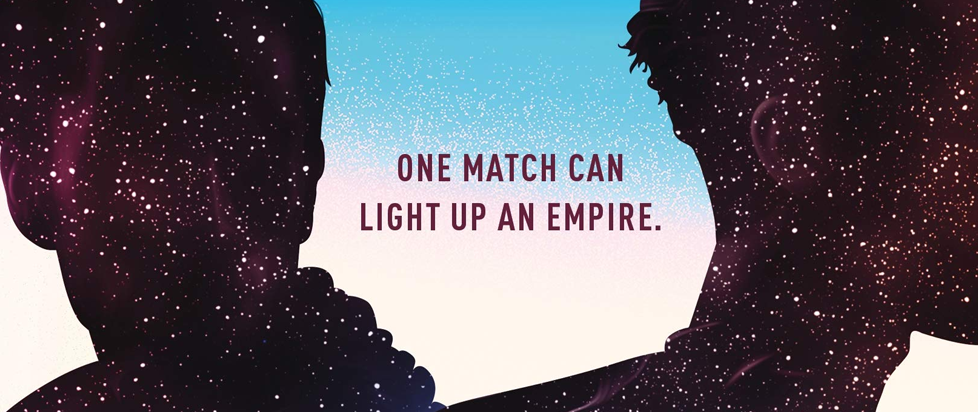
Winter’s Orbit, Fireheart Tiger, and the Empire
Trigger warnings: The book Winter’s Orbit contains narratives surrounding partner death, gaslighting, emotional, physical and sexual abuse between domestic partners, mind control and forced marriage. Fireheart Tiger contains some themes related to past trauma and intimate partner abuse. I will be talking about these things in the course of this review.
“The empire comes first. My home planet can do nothing for me without endangering the Resolution treaty. I am not an asset–I am a liability.”
There’s something wrong in the empire.
I started reading Aliette de Bodard’s Fireheart Tiger around the same time as I started finishing Everina Maxwell’s Winter’s Orbit and found overlap in both the temporal and literal sense. They both are queer. They both discuss empires and partner abuse. Both feature intelligent ambassadorial characters that feel undercut, but should be given more power at the bargaining table. Fireheart Tiger is explicitly marketed as “postcolonial fiction,” and it’s interesting to view both books through that lens.
Winter’s Orbit is a space-opera romance about two men, strangers, brought together for a sudden political marriage. There is Prince Kiem of Iskat, the dominant empire, a reformed party boy with a heart of gold and Count Jainan of Thea, scholarly and stoic. Their relationship is the focal point for an important treaty that will allow both of their planets continued membership into a type of galactic organization, the Resolution. But also they just met because Jainan’s prior partner recently and suddenly died. Fireheart Tiger is about Thanh of Bính Hải (inspired by Vietnam) who was fostered at the foreign capital of a larger, more powerful empire – Ephteria – and the princess of that kingdom, Eldris, has come to Bính Hải to seek a further treaty and Thanh as her wife.
The key similarity to the two of these books is in the implicit and explicit power disparity between the partners. For example, when Thanh agrees to the marriage with Eldris, she does so with the clear understanding that doing so gives her country a seat at the table, a broader negotiation power; she asks what happens to Bính Hải, if Ephteria will be content to leave her country unmolested. Eldris responds:
“There are other countries,” Eldris says. “Xứ Quỳnh Hoa. Ngân Kỳ. Other outlets for our merchants.” She smiles, and it’s all edged teeth, and Thanh feels queasy without knowing why.
Bính Hải will be spared, but an empire must still feast. Empires, after all, are made off of the suffering of someone. When Thanh ultimately comes to the decision that she cannot make the sacrifices needed to become Eldris’ bride, Eldris reacts in anger and violence; an empire cannot be denied.
Jainan is abused, pretty consistently, by his past partner Taam, himself an Imperial Prince; the book makes the abuse unambiguous. Through Jainan’s memories, his reactions in the present day, as well as through footage from the past, the audience is shown Taam being emotionally, physically and at one point sexually abusive to his partner.
Gaslighting is an overused term right now; a lot of people will incorrectly say that the President is gaslighting the country for example, but that’s not what the word means. Gaslighting is a form of psychological manipulation in intimate relationships wherein one party seeks to sow doubt, to undermine reality for the other party. While it is not the same, in both books, intimate partner violence is intrinsically tied to the violence of the state as the people from the colonized and conquered countries are the ones who are threatened, attacked and gaslit by the romantic partners from the stronger colonial counterparts. The gaslighting for Jainan is literal, the violence inflicted by the colonial empire is not, though in the case of Winter’s Orbit it goes a bit harder into the metaphor. By the end point in their relationship, Taam has convinced Jainan that he not only deserves the abuse that he has received but that he is a danger to his own planet, that he needs to be kept under close watch by what amounts to be the Secret Police, and that Jainan is somehow intentionally undermining Taam at every step of the way. None of this is true.
The gaslighting and abuse are integral to Jainan’s character throughout Winter’s Orbit, but in the third act we are introduced to the “Tau field.” The “Tau field” is basically a mind/memory manipulation machine which the military affiliated villain uses in an attempt to have Jainan come to believe that he is responsible for Taam’s death by rewriting his own memory. The machine forces the patient to live through the memories again, and since the memories in question are associated with Taam, they are Jainan being abused by his partner. The “Tau field” was made, in part, by Taam’s military group. In effect, the state is enacting a continued violence against the individual.
What is an empire if not violence against the individual? Thanh finds in herself the strength to compel the empire to kneel, and to an extent the same happens with Jainan, but they do so only in weaponizing the violence done against them.
These books were supplied for review by Macmillan-Tor/Forge. If you are interested in a copy of Winter’s Orbit or Fireheart Tiger, you can get them through Bookshop; this is an affiliate link.




